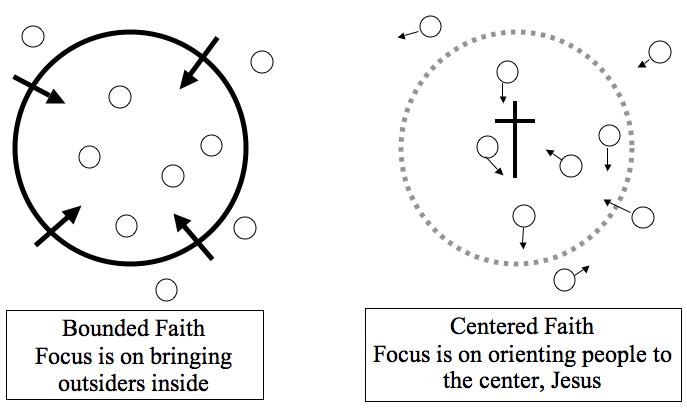There was a time when I thought it was my Christian duty to point out anything I thought someone was doing wrong.
I called out teachers for being too hard on other kids.
If the pastor said something I disagreed with in a sermon, I informed him of it afterward.
I made sure people on the worship team knew they kept going flat when they hit that G.
I tried to talk my friends, Christian and otherwise, out of committing sins.
Oh, I wasn’t mean about it. I was truly concerned, and wanted to help. And when you’re a perfectionistic eldest child in your late teens and early twenties, I guess that’s what help looks like. Because doesn’t everyone want to know how to be more perfect? And isn’t it my responsibility to make sure they know how?
I don’t think I’m the only Christian who has struggled with this. We have a behavior management problem. Don’t get me wrong: self-control is a fruit of the Spirit, and we are called to make wise, God-honoring choices. But when we try to manage others’ behavior? That leads to all sorts of heartache and trouble.
Here’s why.
First of all, none of us really know what another person is going through. We’re all in process, and none of us are perfect yet. I remember hearing Brennan Manning speak years ago. He pointed out that that runaway teen turning tricks on the street, who falls asleep with the name of Jesus on his lips, may in fact have made a lot more spiritual progress than a milktoast Christian who came from a happy home.
It’s like Paul Hiebert’s evangelism paradigm, bounded sets vs. centered sets. Maybe one person seems closer to Christ than another, but what is their trajectory? Are they moving toward Christ or away from him? Are they stagnant and complacent?
We should be helping people move toward Christ, not shoving them into the position we think they should inhabit.
Second, it’s not our job to change, convict, or transform people. That’s the Holy Spirit’s job.
I think parents can be especially guilty of this mindset, because we want to raise our kids well, instill healthy habits and beliefs. But that wears thin after twenty years or so, and attempting to police someone’s speech, behavior, and lifestyle can push them further away, because who wants to be manipulated and controlled?
We also need to look at our motives for pushing people. While we may worry about destructive choices, oftentimes, a good part of our concern is about how WE want people to live their lives, how their choices make us feel. We’re worried about how their behavior reflects on us, and our attempts to change them are motivated by shame. C O – D E P E N D E N T. We can’t love freely when our self-worth is tangled up in someone else’s free will.
We need to get better at loving people where they are at, no ifs, ands, or buts about it. Love should never include disclaimers.
So should we just let people do whatever they want to do, live however they want to live?
Yes and no.
Yes, because honestly, we have no control over the behavior of adults, and it is deeply offensive to act like we do. Each and every one of us is ultimately accountable to God. We can’t shoulder our way into that relationship and try to mediate between the two of them, haranguing the person and acting as if their behavior is our spiritual responsibility. That’s infantalizing and dehumanizing. We need to allow people the dignity of making their own decisions, even if we’re sure those decisions are wrong and will lead them down a bad path.
And no, because we need to have boundaries. But we can really only set boundaries for ourselves. Telling an adult “you can’t do this” strips them of their dignity, and all too often sets up a cycle of co-dependency as you try to “fix” their behavior. But you can certainly say “you can’t do that to me,” or “you can’t do that in my house.” The only person whose behavior you can control is your own, and that is actually a very good thing.
Here’s the long and short of it. It’s not our job to fix people’s behavior. It is our job to love them, pray for them, and point them toward Christ, in whatever way we can.
In order to do that, we’re going to need to offer a lot of grace. And in order to offer grace, we need to let go of the shame, perfectionism, and fear that drives us and accept that grace for ourselves.
Is your focus on spiritual performance? Or is your focus on Christ?
I wish you all loads and loads of grace!


18 Responses to Love Should Never Include Disclaimers: Why Christians Need to Stop Trying to “Fix” People